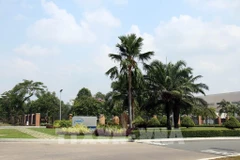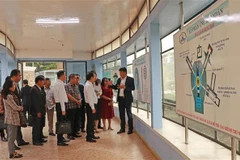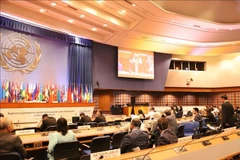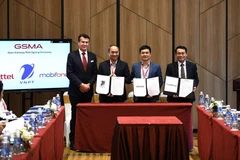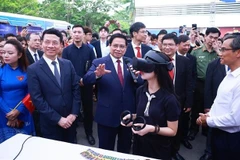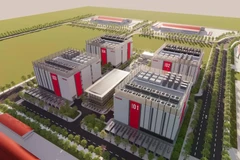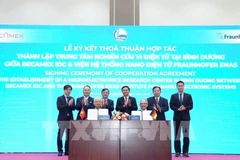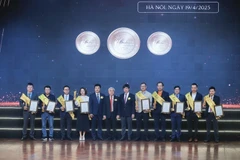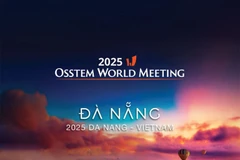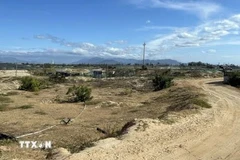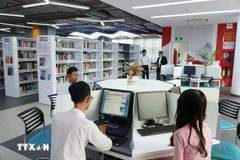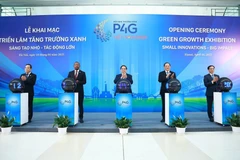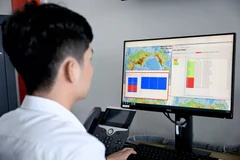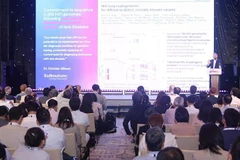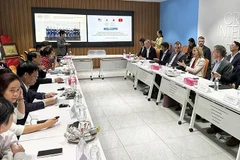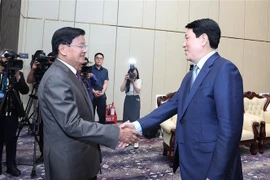The Deputy PM’s stern warning came at a national conference held in Hanoi on March 6.
Theconference reviewed 10 years of implementing a decree that setregulations for autonomous operation of State-owned scientific andtechnological organisations.
A report tabled by the Ministry ofScience and Technology said that 488 of 642 State-owned scientific andtechnological organisations, or 76 percent, had their project proposalsfor autonomous operations approved prior to the December 31, 2013deadline.
Among these, 295 organisations have been able to covertheir operational expenses on their own, and the remaining 193 have usedState budget funds under the contract mode, the report said.
It said 100 percent of scientific and technological organisations now enjoy full autonomy in implementing their tasks.
Severalorganisations have reported that their entire 2014 turnover came fromcontracts for researching and developing scientific and technologicalservices.
The Vietnam Petroleum Institute, for instance, had acontract worth 601 billion VND (28 million USD), while the Institute forMachinery and Industrial Instruments won a 712 billion VND (34 millionUSD) contract.
Likewise, the National Research Institute forMechanical Engineering reported a contract worth 680 billion VND (32million USD), the Directorate for Standards, Metrology and Quality'sTechnical Centre of Standards Metrology and Quality No 3, a 350 billionVND (16.3 million USD) contract, the Tobacco Economic TechnicalInstitute, a 291 billion VND (13.6 million USD) contract, and theVINACOMIN – Institute of Mining Science and Technology, a 205 billionVND (9.6 million USD) contract.
However, Tran Quoc Khanh, DeputyMinister of Science and Technology, noted that only scientific andtechnological organisations that benefit from diverse sources of incomeand enjoy stable profits would be able to thoroughly meet theirself-control and self-responsibility obligations.
"Organisationsthat have special functions, limited capacity and engage in researchthat does not lend easily to commercialisation, and do not make profitfrom their own services, face a lot of difficulties in implementingself-control and self-responsibility mechanisms, especially in finance,"he said.
Nguyen Quan, Minister of Science and Technology, saidthe greatest challenge of the past ten years has been the lack ofthorough preparation as well as inadequate knowledge of the decree.
Thiswas compounded by the lack of determination to take action on the partof leaders of organisations as well as some ministries, sectors, andlocalities, he said.
In fact, he added, some ministries, sectorsand localities have failed to complete approval of self-controlimplementation projects of organisations directly under theirmanagement.
He noted that localities like the cities of Hanoi andDa Nang and the provinces of Bac Giang, Ha Nam, Khanh Hoa and Lai Chauhave not yet ratified any projects.
Quite a few ministries andsectors have been very slow in issuing and amending documents guidingthe implementation of Decree 115, especially regarding financial regimesand norms.
This might also be because very few organisationshave been given full autonomy over their finances, human resourcesmanagement and international co-operation, he conceded.
Deputy PMDam, on his part, stressed the need for transparency in all steps, fromselecting the topic of research to checking its content and publishingthe results. He said this was needed to avoid the duplication ofprevious works.
"And autonomy or self-control is an importantphase in practicing transparency in scientific and technologicalresearch in Vietnam," Dam said.
He said unofficial statisticsindicate that more than 1 percent of the GDP is funneled into scientificand technological research, which is not much lower than countries atsimilar development levels.
Nevertheless, the resource should beutilised much more efficiently to increase the number of people workingin the field, and decrease wastage. The number of people not performingtheir tasks effectively should be reduced, he said.
"Theultimate goal of the autonomy regulation is to address shortcomingsresulting from years of subsidies, which led to ineffective use ofinvestments for science and technology and the failure to attractnon-State sectors to invest in this area," the deputy PM said.
"Ihave asked the ministries of Science and Technology, Home Affairs andFinance to completely address lingering shortcomings on their own orrequest decisions from the Government and the Prime Minister," he said.
Healso asked ministries, sectors and localities to show greaterdetermination in clarifying all issues and ensuring self-control in allorganisations directly under their management, especially the 154 whoseself-control projects have not been approved.
"If anyorganisation fails to transfer to the self-control operation, they willno longer receive State budget funding," he said.-VNA
